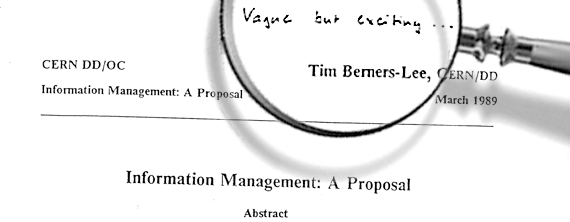The following post has been authored by Vishakha Singh Deshwal, an LLM candidate at the West Bengal National University of Juridical Studies (WBNUJS), Kolkata. Here she analyses an emerging issue at the intersection of technology and competition law. Every enterprise wants its Uniform Resource Locator (URL) to appear among the top links on search…
Category: Network Neutrality
Net Neutrality And Economics 101 (Part II)
In Part I, I attempted to provide an overview of the ISP market structure, market players and associated economic phenomena. In Part II, we will be discussing the more specific topic of Net Neutrality and its intersection with economics. Please note that over the course of the ensuing write-up, I have referred to two kinds…
Network Neutrality Around The World : A Basic Overview
Network Neutrality (NN) refers to a network wherein participants are effectively blind to the nature of data flowing through the network. Another way of defining NN is a network wherein participants are restricted from differential treatment of data flow. Please understand that the definitions provided above are, in cliché speak, two sides of the same…
TRAI’s Consultation Paper on Net Neutrality and the Regulatory Approach to Net Neutrality in India
An explanation of the regulatory and policy approaches analysed by the TRAI in their Consultation Paper
RELIANCE JIO: REGULATORY AND PRIVACY IMPLICATIONS
Ed. Note.: This post, by Sayan Bhattacharya, is a part of the NALSAR Tech Law Forum Editorial Test 2016. In the world of technology dominated by a power struggle in terms of presence and absence in data circles, Reliance Jio has probably made the biggest tech news of the year with its revolutionary schemes. By…
Meet the New Internet, Same as the Old, Old Internet – except its not the Internet (Part III – the Future of Networks)
This is the third post in this series; the first two, which set the background for the issue, are available here and here. The question therefore becomes – is it time we look beyond the ‘internet’ as it exists, to newer models of communication? The ‘models’ I refer to here are not absolutely novel –…
Meet the New Internet, Same as the Old, Old Internet – except its not the Internet you know (Part II – The Tangled Wires)
This is the second in my three-part series on the issue. The first and third parts are available here and here. Tangle One I’ll start with a side-note. In public debate, somehow, Network Neutrality ends up being represented as an absolutist concept, as “ISPs should perform no discrimination between the data travelling on their networks”….
Supreme Court on Non-Discrimination in Call Networks – An Argument for Indian Network Neutrality
(Image Source: http://flipthemedia.com/2014/01/net-neutrality-rules-are-dead-for-now-why-should-students-care/) In an incredibly interesting judgement, the Supreme Court has on 30th January, in the case of Cellular Operators Association Of India & Ors. v. Telecom Regulatory Authority Of India & Ors., stated that providing different rates for calls to private Telecom Service Providers in comparison to those for calls to BSNL/MTNL violated of Article…
Net Neutrality Violations in India: On BluWiFi and OTT Services
I have written some posts about Net Neutrality before, here and here (the second is the 101). And recently, the now-aborted Airtel VoIP plans has kick-started serious discussions on the topic by TRAI, prompting the regulatory agency to issue a statement saying it will be releasing a consultation paper on the issue soon. But it…
Facebook, 'Internet.org' and the Ignored Questions of Civil Liberties
(Image Source: https://flic.kr/p/4W8mW) Earlier yesterday, Facebook founder Mark Zuckerberg met with the Indian Prime Minister Narendra Modi and Minister of Communications and Information Technology Ravi Shankar Prasad (who curiously also holds the Ministry of Law and Justice portfolio). The Facebook CEO was in New Delhi on the 9th and 10th of October for the Internet.org…



